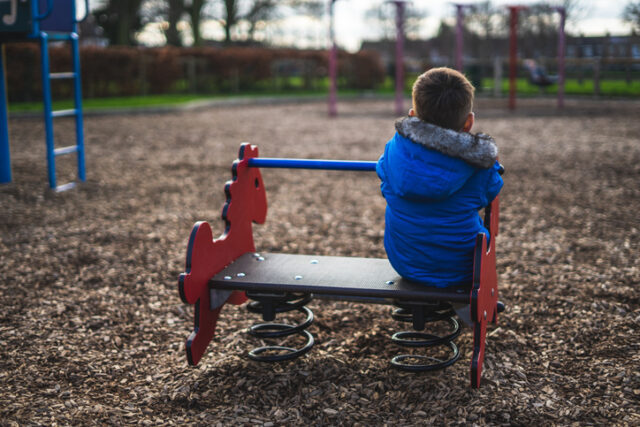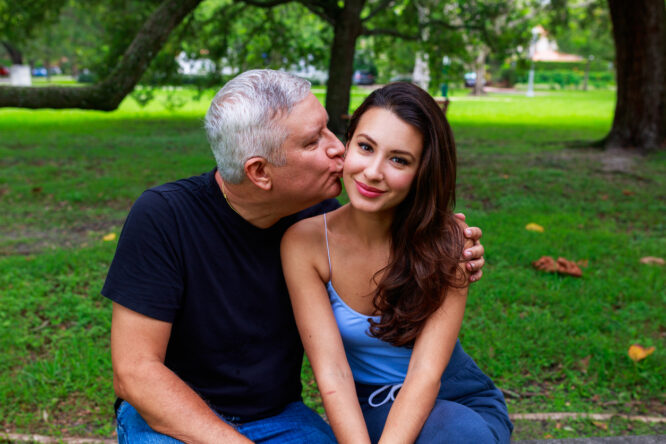Not every childhood is marked by obvious neglect or dramatic trauma.

Sometimes, it’s the absence of warmth — the lack of emotional safety, gentleness, or affection — that leaves the deepest imprint. You might not have realised it at the time. However, as you get older and work your way through life, there are often little signs that your parents didn’t give you the kind of warmth that helps a person feel safe, valued, and emotionally secure. Here’s how you know this might have been your experience.
1. You feel uncomfortable when someone is genuinely kind to you.

When someone offers consistent care or gentle support, it can make you feel uneasy instead of comforted. You might brush it off, change the subject, or instinctively pull away, unsure how to sit with something that feels unfamiliar. It has nothing to do with being cold; it’s about not knowing what to do with softness. If warmth wasn’t modelled or offered regularly in childhood, receiving it in adulthood can feel disorienting, even suspicious.
2. You struggle to believe people really like you.

Even when people are clear that they care, you find yourself doubting it. You wonder if they’re just being polite, if they’ll change their mind, or if they’ll leave once they really get to know you. That kind of insecurity often traces back to not feeling emotionally cherished as a child. If your parents didn’t make you feel like you were deeply wanted or enjoyed, it’s hard to trust that anyone sees you that way now.
3. You apologise for having needs.

Asking for help or expressing discomfort feels like an inconvenience. You might preface everything with “Sorry to bother you,” or avoid saying anything at all to keep the peace. When warmth was missing at home, you often learned to minimise yourself to avoid being a burden. The message wasn’t always spoken out loud, but it taught you that your needs weren’t welcome.
4. Physical affection doesn’t come naturally to you.

Hugs, gentle touch, or sitting close might feel a bit awkward, even with people you care about. You might go along with it, but not really know how to initiate or receive it fully. When affection wasn’t a regular part of your upbringing, your body doesn’t always know what to do with it later. It can take time to build comfort with something you weren’t raised to see as safe or normal.
5. You over-explain yourself, even when you don’t need to.

You’re constantly anticipating how other people will react, and you feel the need to justify even small decisions. You worry about being misunderstood or upsetting someone without meaning to. That’s often a leftover habit from walking on eggshells. When warmth was inconsistent or conditional, over-explaining became a way to avoid conflict and earn approval.
6. You rarely share how you’re really feeling.

Even in close relationships, there’s a part of you that holds back. You share facts, opinions, or stories, but not the deeper emotional layer underneath. If your childhood environment didn’t feel emotionally safe, you probably learned early on that expressing feelings led to dismissal, discomfort, or consequences. So now, you play it close to the chest, without always meaning to.
7. You crave praise but don’t trust it.

You long to be recognised or appreciated, but when someone offers genuine praise, you feel uneasy or brush it off. It never quite lands the way it should. That push-pull dynamic often stems from growing up without consistent encouragement. You learned to crave validation, but also to question its sincerity because real warmth wasn’t something you were taught to expect.
8. You feel the need to earn love or belonging.

Being liked or accepted doesn’t feel automatic. You often feel like you have to perform, prove your worth, or stay useful to be kept around. That belief tends to take root when love wasn’t offered freely. If connection felt conditional in childhood, you might still be trying to “deserve” closeness even when you’re already deeply cared for.
9. You associate calm moments with discomfort.

When things feel peaceful or still, part of you stays on edge. You might feel like something’s about to go wrong, or that calmness is a setup for disappointment. If warmth and safety weren’t steady growing up, your nervous system may not know how to rest. You learned to brace instead of relax because ease wasn’t something you could count on.
10. You worry about being “too much” for people.

Big emotions, strong opinions, or deep needs make you worry you’ll overwhelm people. So you downplay what you feel, filter your personality, and stay low-maintenance even when you need support. It often comes from being made to feel like your presence was a lot to handle. When parents lacked emotional warmth, you internalised the idea that you had to be smaller to be tolerated.
11. You aren’t sure what healthy closeness should feel like.

You want connection, but you’re not always sure how to recognise when it’s healthy. You might feel drawn to people who are distant or unpredictable, not because it feels good, but because it feels familiar. If you didn’t grow up with consistent emotional warmth, your reference point for closeness might be off. Sometimes, what feels safe is actually just what you got used to.
12. You’re hard on yourself for feeling lonely.

When loneliness creeps in, your first instinct is to judge yourself. You tell yourself you shouldn’t feel this way, or that it means you’re doing something wrong. That harshness often traces back to not being soothed as a child. When your emotional needs were met with silence or irritation, it taught you that your pain was inconvenient, and now, you treat it that way too.
13. You find it easier to care for other people than to let them care for you.

Supporting other people comes naturally. But when someone tries to show up for you, it feels foreign, like you don’t know how to accept it without guilt or discomfort. That imbalance often starts in childhood, especially when emotional warmth flowed one way. If you were the caretaker in your family, receiving care now can feel strangely vulnerable.
14. You second-guess your memories of your childhood.

You know your parents weren’t cruel, but something still feels like it was missing. You wonder if you’re being dramatic or ungrateful for feeling emotionally disconnected from them. A bit of confusion is common when neglect was emotional, not physical. You were fed, clothed, and looked after, but the warmth, softness, and emotional availability just weren’t there.
15. You struggle with trusting your emotional instincts.

When something feels off or someone hurts you, your first reaction is to doubt yourself. You talk yourself out of feelings or try to explain them away before even sitting with them. It can stem from being gaslit or ignored as a child when you expressed discomfort. Without warmth and validation, you learn that your feelings are unreliable, even when they’re completely valid.
16. You have a deep longing for something you can’t quite name.

There’s this ache that shows up from time to time — a yearning for softness, safety, or a kind of emotional connection that feels out of reach. You might not even realise what you’re missing, only that something feels incomplete. That feeling often points back to a lack of emotional warmth in childhood. It’s not about blaming anyone; it’s about naming what was absent so you can start learning how to give it to yourself now.




